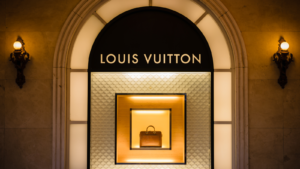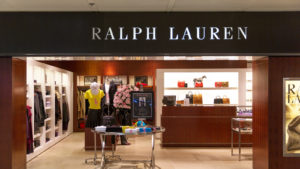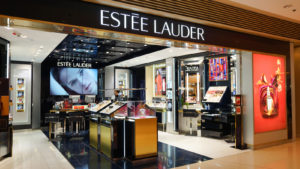
In an era where luxury transcends mere possessions to reflect a lifestyle, the allure of luxury brand stocks goes beyond aesthetics. The same applies to investments in high-brand companies. Beyond the ebb and flow of markets, certain names stand with a static edge. This supports opulence with exponential growth potential. These three titans are reshaping the luxury space and attracting savvy investors with their edgy performances.
From soaring revenues to strategic market penetrations, these brands point to the fusion of tradition and attract fashion enthusiasts with savvy investors by capitalizing on the allure of luxury. Read more to uncover the secrets behind the rise of luxury brand stocks. The article explores the driving forces propelling these icons toward massive growth amidst global adversities.
LVMH (LVMUY)

LVMH’s (OTCMKTS:LVMUY) strong product portfolio is vital for its market valuation. For instance, the revenue in 2023 stood at over €86 billion. The top line delivered a year-over-year increase of 9% compared to 2022. This growth is solid, considering the ongoing economic and geopolitical uncertainties.
At the bottom line, the profit from recurring operations reached €22.8 billion, with a rapid increase of 8%. Despite challenges such as inflation and rising interest rates, LVMH managed to maintain a solid bottom line. Additionally, organic growth was sustained across all business areas except for Wines & Spirits, highlighting the adaptability of LVMH’s diverse portfolio.
On the other hand, LVMH delivered a strong presence across different regions, with a balanced geographical distribution of sales. Asia remains the largest market, holding 31% of the top line, followed by the US and Europe. Despite challenges in regions like the US, LVMH attained considerable growth in markets like Japan and Asia, with double-digit growth rates over the last two years.
Additionally, LVMH boasts a lineup of vital luxury brands, including Louis Vuitton, Dior, Tiffany, Bulgari, Sephora and many more. These brands are recognized for their desirability. The company continues to edge in product development. This can be observed in the progressive launches of new products such as the Tambour watch and Vuitton perfumes.
At its core, Fashion & Leather Goods, LVMH’s largest segment, delivered a solid year-over-year growth of 14%. This is based on performances from brands like Louis Vuitton, Dior and Celine. Similarly, Perfumes & Cosmetics achieved double-digit growth of 11%, with the standout lead of Dior fragrances and other brands within the portfolio. Lastly, selective retailing, particularly Sephora, delivered edgy performance, surpassing forecasts and providing organic growth.
Ralph Lauren (RL)

Ralph Lauren’s (NYSE:RL) brand resonance and market penetration are fundamental supporting values for growth potential. For instance, during Q3 fiscal 2024, the holiday season activations generated nearly 8 billion global impressions, indicating the widespread reach of Ralph Lauren’s campaigns.
Specific campaigns, such as the Polo Ralph Lauren Artist and Residence featuring Navajo Designer Naiomi Glasses, drove more than 3 billion impressions. This is the highest engagement ever attained on TikTok. Celebrity endorsements, such as Taylor Swift choosing Ralph Lauren for the cover of Time Magazine, further enhanced brand visibility and engagement.
Ralph Lauren added 1.7 million new consumers to its direct-to-consumer businesses during Q3, demonstrating a high single-digit year-over-year increase. This growth in consumer acquisition suggests the effectiveness of the brand’s marketing efforts. This also suggests the appeal of its products to new audiences. Further, the company experienced low double-digit growth in social media followers across platforms such as TikTok, Instagram, WeChat and Douyin. This growth reflects the brand’s capability to establish solid engagement with consumers on digital platforms.
Furthermore, the considerable impressions generated by Ralph Lauren’s campaigns correlate with the growth in consumer acquisition and social media followers. The higher engagement on social media platforms indicates increased brand affinity among consumers. Core products, representing about 70% of the company’s business, experienced low double-digit growth in the quarter, surpassing the overall company growth rate. Iconic products like mesh polo shirts, Oxford shirts, cashmere sweaters and blazers contributed significantly to core growth.
Finally, in Q3 fiscal 2024, Ralph Lauren achieved strong growth in high-potential categories, including women’s, outerwear and home goods. They increased by low double digits compared to Q3 fiscal 2023. Therefore, the company’s focus on elevating assortments in these categories may lead to sustained growth and expanded valuations.
Estee Lauder (EL)

Estée Lauder (NYSE:EL) edged on top-line performance despite headwinds. For instance, in Q2 fiscal 2024, there was an 8% decline in organic sales in line with expectations. This indicates the company’s capacity to act on its performance forecast. This performance stability is a fundamental moat based on Estée Lauder’s operational efficiency and strategic moves.
In Europe, the Middle East and Africa, organic net sales declined by 14% due to the continued challenges, particularly in Asia travel retail. Despite these hurdles, the company is maintaining flat growth across all markets. Hence, this indicates Estée Lauder’s edge through its diversified portfolio and capability to offset weaknesses in one region (with strengths in others).
Similarly, the Asia-Pacific region delivered a fall of 7% in organic net sales, based on adversities in mainland China. However, vital growth in regions like Hong Kong SAR, Korea and Japan suggests Estée Lauder’s adaptability to market shifts. Estée Lauder mitigates the impact of downturns in specific regions by capitalizing on market demands, thereby maintaining stability in its global operations.
Additionally, there was a 1% decline in organic net sales in the Americas. However, Estée Lauder attained top-line growth in multiple regions, particularly Latin America. A double-digit organic net sales growth demonstrated Estée Lauder’s capability to leverage regional strengths and capitalize on related demand.
Estée Lauder’s outlook for the remainder of fiscal 2024 is positive. The company may deliver 3% to 5% organic net sales growth in Q3, supported by the expected growth in Asia travel retail and mainland China. Overall, this optimistic outlook may support the valuation in the upcoming quarters.
As of this writing, Yiannis Zourmpanos held a long position in LVMUY. The opinions expressed in this article are those of the writer, subject to the InvestorPlace.com Publishing Guidelines.






